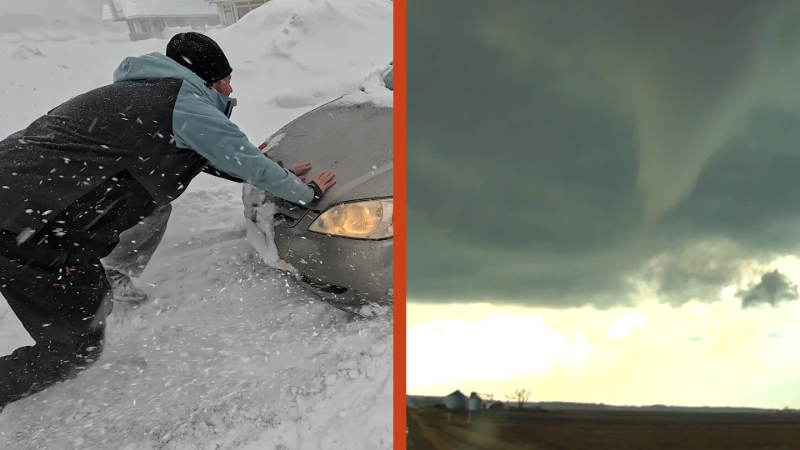Ocean heat is driving a global coral bleaching event, and it could be the worst on record
A record hot July across Florida prompted unprecedented levels of coral bleaching in the Florida Keys. Now, humans are stepping in to do whatever they can to save the surviving coral.
(CNN) — Coral reefs around the world are experiencing a mass bleaching event as the climate crisis drives record-breaking ocean heat, two scientific bodies announced Monday — with some experts warning this could become the worst bleaching period in recorded history.
More than 54% of the world’s coral reef areas have experienced bleaching in the past year, affecting at least 53 countries and territories including large swaths of the Atlantic, Pacific, and Indian Oceans, a joint statement from the National Oceanic and Atmospheric Administration (NOAA) and The International Coral Reef Initiative (ICRI) said.
“It is likely that this event will surpass the previous peak of 56.1% soon,” Derek Manzello, the coordinator for NOAA’s Coral Reef Watch program, said in an email to CNN. “The percentage of reef areas experiencing bleaching-level heat stress has been increasing by roughly 1% per week.”
When corals are exposed to stress from marine heatwaves, they spit out the algae living within their tissue, which provides them with both their color and most of their energy. If ocean temperatures don’t return to normal, bleaching can lead to mass coral death, threatening the species and food chains that rely on them with collapse.
This marks the world’s fourth global bleaching event, and the second in the past decade – with previous periods in 1998, 2010, and between 2014-2017.
In the past year, mass bleaching has been confirmed in regions including Florida and the wider Caribbean, Mexico, Brazil, Australia, the South Pacific, the Red Sea, the Persian Gulf, Indonesia, and the Indian Ocean including the east coast of Africa and the Seychelles.
Professor Ove Hoegh-Guldberg, a climate scientist specializing in coral reefs based at the University of Queensland in Australia, predicted this mass bleaching event months ago.
“We knew sea temperatures were increasing rapidly, but not at this speed,” Hoegh-Guldberg told CNN on Monday. “The worrying issue is that we don’t know how long this massive temperature change is likely to last.”
The last 12 months have been the planet’s warmest on record and ocean temperatures have been surging off the charts. Global sea surface temperatures hit record highs in February and again in March, according to data from the European Commission’s Copernicus Climate Change Service.
In February, scientists at the Coral Reef Watch program at NOAA added three new alert levels to the coral bleaching alert maps, to enable scientists to assess the new scale of underwater warming.
Will La Niña bring relief?
El Niño, a natural climate pattern which originates in the Pacific Ocean along the equator and tends to push up global temperatures, has helped drive the unprecedented ocean heat.
NOAA predicts La Niña, El Niño’s cooler counterpart, could arrive between June and August this year, which provides “a nugget of hope” for coral reefs, NOAA’s Manzello said.
But, he added, bleaching events have still occurred during La Niña in the past few years.

A researcher works to save bleached coral off the Florida Coast.
“I am becoming increasingly concerned about the 2024 summer for the wider Caribbean and Florida,” Manzello said. “When we roll into summer and the bleaching season for Florida and the Caribbean, it won’t take much additional seasonal warming to push temperatures past the bleaching threshold.”
In mid-February, CNN witnessed extensive coral bleaching on Australia’s Great Barrier Reef – the world’s largest coral reef system – on five different reefs spanning the northern and southern areas. A mass bleaching event was officially confirmed there last month after aerial and underwater surveys by the Australian Institute of Marine Science (AIMS) and the Great Barrier Reef Marine Park Authority.
“The increasing frequency and extremity of marine heatwaves driven by climate change, is testing the tolerance levels of coral reefs,” said Selina Stead, the CEO of AIMS. “Climate change is the biggest threat to coral reefs worldwide and this global confirmation illustrates just how extensive its impact has been across the last 12 months.”
“That is why it is critical the world works to reduce carbon emissions,” Stead added. “It is also important to ensure coral reefs are well managed at local and regional levels.”
The UN Environment Programme has warned that if the world fails to aggressively lower its emissions, the planet is heading towards nearly 3 degrees Celsius of warming above pre-industrial levels this century.
Scientists predict that even at 2 degrees of warming — which the world could reach around 2050 — approximately 99% of corals on Earth would die.
As well as being an essential habitat for marine life, coral reefs are crucial for the world’s coastal communities — they act as a vital defense system against the threat of flooding from storms and sea level rise, and also provide livelihoods and a vital food source for an estimated billion people globally.
David Ritter, CEO of Greenpeace Australia, said reefs were facing “existential danger” and that blame lies “squarely with the main culprits fueling global warming: fossil fuel companies, and the governments who prop up this industry.”
“We are running out of runway to avoid irreversible climate disaster,” he added, “and must act quickly to ensure an immediate end to new fossil fuels.”
The-CNN-Wire™ & © 2024 Cable News Network, Inc., a Warner Bros. Discovery Company. All rights reserved.
Report a Typo














